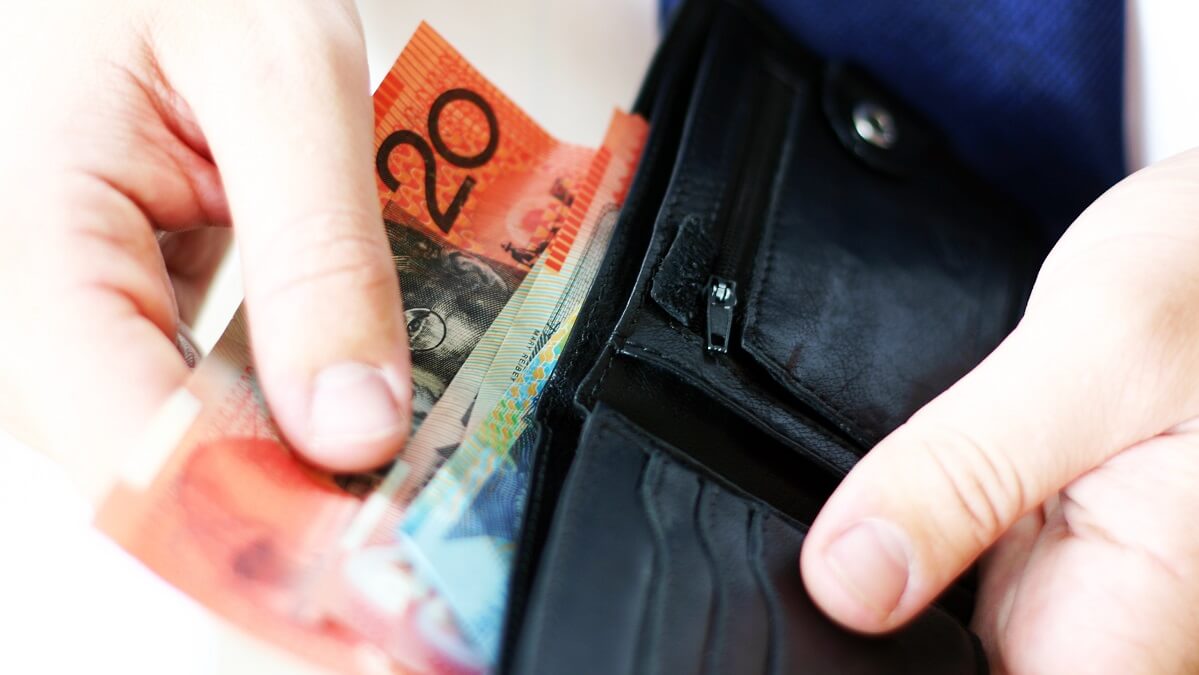Do you have avocados, pineapples and lobsters under your bed? Now, before that question takes you to a bizarre biological dreamworld, a clarification. In this case, the terms avocados, pineapples and lobsters are not a reference to fruit and seafood.
No, we’re talking about money – cash – specifically, $100, $50 and $20 notes, nicknamed for their colours as avocados, pineapples and lobsters respectively.
Why would you have them, or any other banknotes, for that matter, under your bed? Well, for many Australians, cash remains king or, in some cases, has recently reascended the throne. According to the Reserve Bank of Australia (RBA), over the past couple of years more people have been storing their wealth as cash – literally physical banknotes – than in the pre-COVID years.
Read: Can businesses legally refuse to accept cash?
In some ways, this flies in the face of what might have been expected during the pandemic. The risk of contracting or passing on COVID led to many retail outlets banning the use of cash, forcing many to become practitioners of contactless payment.
In theory, that should have led to a drop in the demand for cash, but the RBA’s 2022 annual report reveals the opposite to be true. According to the report, 2020 and 2021 were big years in terms of banknote demand as people showed what the report describes as “a desire to hold cash for precautionary or store-of-wealth purposes”.
On the other hand, the report says there has been an “ongoing shift in consumer payments away from the use of cash and cheques and towards cards and other electronic means of payment”.
Read: Latest RBA interest rate rise might be the last for some time
An indication of the changing nature of the demand for cash is the analysis of banknotes by denomination. “The growth in banknote demand was mostly driven by the higher denominations,” the report says.
The circulation of both $100 and $50 notes increased by 7.4 per cent in 2022, while the increase for $5 notes (1.6 per cent) and $10 notes (1.0 per cent) was well below the growth rate of the 10 years before that.
In short, the RBA’s statistics show that we’re using cash to stash, rather than cash to lash out on purchases.
Why Australians are now storing more cash is a matter of conjecture. The RBA speculates that the practice most likely reflects “the importance of cash as a store of value in times of uncertainty and dislocation”.
Read: Could ditching your card and using cash help you budget?
The COVID pandemic, no doubt, has contributed to this sense of uncertainty.
While cash as a savings storage method might not last, the RBA suggests the drop in cash as a method of payment almost certainly will.
“It is expected that the pandemic will have had a lasting effect on cash usage, with a survey of households conducted in late 2021 by the RBA suggesting around one-quarter of respondents have permanently reduced their preference for cash use as a result of the pandemic,” according to the report.
Banks may also be playing a part in this. As branches continue to close and ATMs become scarcer, it’s becoming harder and harder to withdraw and deposit our avocados, pineapples and lobsters.
Perhaps that’s why there are so many of them under the bed.
Have you changed the way you use cash in the past few years? Is cash no longer king in your world? Why not share your thoughts in the comments section below?


Cash will always be in my life for my food and general spending. I refuse to use my debit card/s when paying for them. Every fortnight I withdraw out these funds and use CASH for them. At the end of the fortnight, I then empty my wallet into my Money Jar, and that’s then kept for contingencies and emergencies.
I use MYOB to keep a track of my spending, and I know where I am financially at all times.
I was at Kmart yesterday, and the service assistant tried to get me to use a self-service register. I said ‘No, thanks, I’ll be served by you or someone else, as I’m not paid by your store to serve my self’.
I have not changed my paying methods since cards came into existence. I have always budgeted weekly. I obtain cash from an ATM (as I would from a bank in the distant past) that covers all my anticipated spending for the coming week. I pay cash were ever possible. It is no less safe carrying cash that a credit card, if fact could be more dangerous. The the thief takes the card but also wants the pin and can use violence to get it from you. If the thief takes cash he/she has no need to be violent.
I only use cash if there is absolutely no other alternative. It is far safer not having to carry it about.
I hate being forced to use cash.
I also hate it when credit or debit card surcharges are applied. We should be well past that now.
Sorry more and more companies are introducing surcharges on purchases , as they should as the banks charge them ridiculous fees , so why should we be a cashless society when we are only lining the pockets of the banks and financial institutions .
Cash will always be my friend and I will continue to use it to the very end !!!
I use cash for smaller purchases and card for larger amounts. Couldn’t imagine life without cash, as it is so convenient and there is no bookkeeping needed. You know exactly how much you have in your wallet. With increasing energy uncertainty it’s quite likely that we’ll face situations where the ATM’s crash and the banking system won’t be accessible to us.